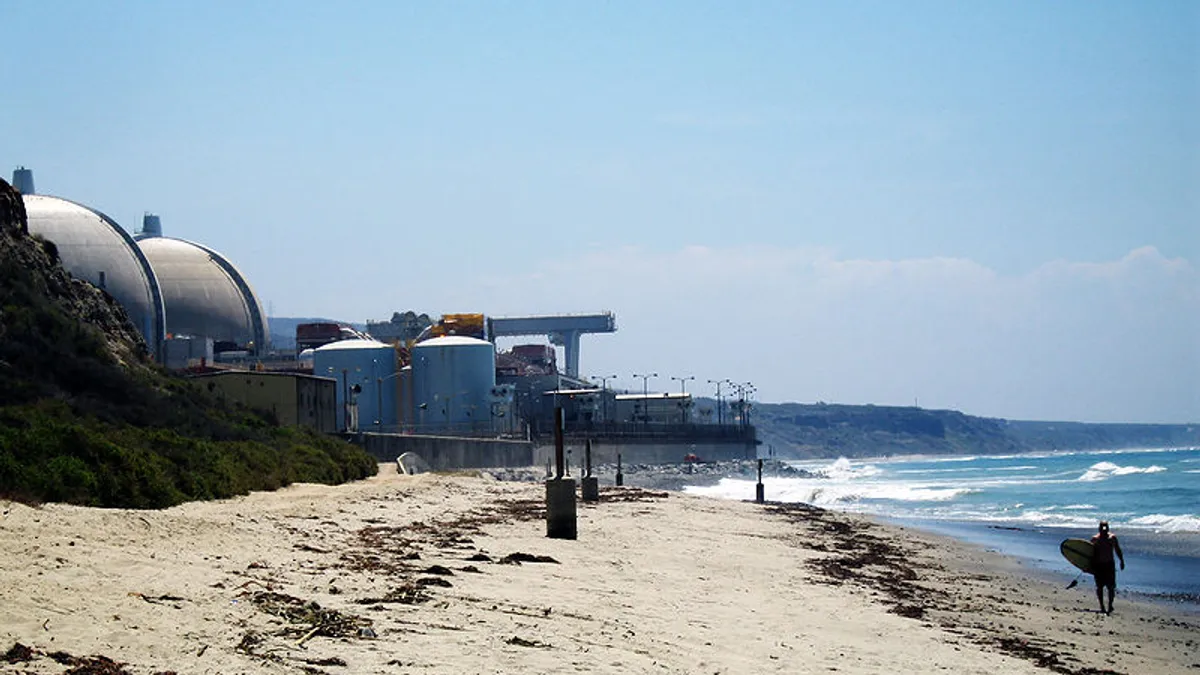Dive Brief:
- California regulators approved a settlement on Thursday, covering the closure costs of the San Onofre Nuclear Generation Station (SONGS).
- The new settlement means ratepayers are are finished paying for the shutdown as of December 2017, and will receive refunds. The deal ultimately saves customers of SCE, San Diego Gas & Electric and the city of Riverside approximately $750 million.
- The plant shut down in 2013 and a year later the California Public Utilities Commission (CPUC) approved a cost-sharing arrangement that left consumers on the hook for more than half of $5.5 billion in costs. Southern California Edison (SCE) the largest owner of the plant, later paid millions in fines when it was revealed the deal was struck in a private arrangement with state regulators.
Dive Insight:
Regulators reopened the 2014 settlement about two years ago, following outrage over news of how the original deal was struck.
Former CPUC President Michael Peevey and an SCE official sketched out the details in a private meeting in a Warsaw, Poland hotel — something only revealed when Peevey's meeting notes on hotel stationary were among papers obtained in a search of his home related to the deadly 2009 Pacific Gas & Electric gas pipeline explosion.
CPUC Commissioner Carla Peterman said ratepayers "deserve closure on this issue," according to the San Diego Tribune.
The SONGS plant was closed five years ago after radioactive steam leaks were discovered in 2012, determined to be from prematurely worn steam generator tubes.
The settlement notes a major modification to the original agreement's Nuclear Fuel Investment provision, which states that the utilities "will not recover amounts for the nuclear fuel balance after the Cessation Date" although they will retain all amounts received from the future sale of the NFI. That provision means customers will no longer pay for those associated costs.
While ratepayers will forego future refunds or credits, the commission said "the immediate cessation of collection in rates as to the revenue requirement associated with the amounts authorized to be recovered under the 2014 Settlement Agreement provides immediate and significant benefits to ratepayers, as opposed to a potential future offset from the sale of the NFI."















